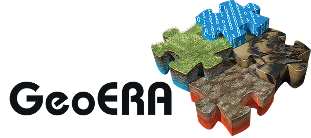The development of subsurface resources has a major influence on the way we live our lives today. Firstly, there is the large economic contribution to society’s welfare and it sustains millions of jobs in Europe. Secondly, groundwater is vital to Europe’s agricultural sector and the food industry in general and clean groundwater is a prerequisite for life itself not only supporting humankind but also ecosystems. Thirdly, much of our energy is derived from fossil fuels, nuclear fuels and increasingly from geothermal sources and energy is at the heart of almost all of humankind’s activities. Fourthly, mineral raw materials are key to almost every aspect of our daily life, whether as fertilizers, construction materials, or raw materials for a myriad of everyday implants, devices and goods. In short, we as a society are strongly dependent on the availability of subsurface resources.
The European Union is facing a number of challenges that are firmly linked to subsurface resources. On the one hand, we need to stimulate economic growth and the use of resources is central to this, and on the other hand, we need to support a healthy and secure environment for all citizens. Moreover, the growing population and the demographic change adds to the pressure of the land utilisation on surface and on subsurface. Altogether, this increasingly puts pressure on the availability and use of natural resources, including geo-energy, raw materials and groundwater. The extraction and use of fossil fuels to meet our energy needs are correlated with emissions of green-house gases (GHG) and therefore jeopardize our climate, and the extraction of natural resources may impact groundwater quality, quantity and/or availability, impacting our wellbeing and health. Both are examples of the trilemma between security of supply, environmental sustainability, and accessibility and affordability.
A better understanding of subsurface processes and the consequences of any actions, whether intended or not, can mitigate or minimize risks and effects such as those mentioned above. Solutions may include the development of alternative energy sources, such as geothermal energy, or the development of carbon capture and storage systems, the promotion of new safe and responsible development methods, or the development of better guidelines, standards and/ or protective measures. To develop suitable solutions addressing the challenges there is an urgent need for harmonized and integrated subsurface information and knowledge to support evidence-based policy- and decision making for the sustainable use and integrated management of subsurface resources.
The GeoERA ERA-NET
GeoERA is a so-called ERA-NET (H2020 ERA-NET Cofund Action). This means that it is not a single research project but rather a research programme. This programme is established and run by a group of 33 national and 15 regional geological survey organisations from Europe (see Parties). Together these organisations constitute the GeoERA consortium.
The programme will fund 15 transnational research projects. The projects have been selected through a two phased call process. you can read about this on the Call page.
Funding of the projects will partly be covered by the GeoERA consortium members (70%) and partly by European Commission (30%). The programme has a total budget of 30.3 M€, and the projects will run for three years starting in June of 2018. Only members of the GeoERA consortium will be beneficiaries of the GeoERA projects.
The objective of GeoERA
The establishment of the “European Geological Surveys Research Area” through GeoERA, and the collaboration of Geological Survey Organisations in the programme, support the European Research Area Policy, which advocates the free movement of researchers, knowledge and technology across Europe, and align and de-fragment research agendas and research funding between countries.
GeoERA is furthermore part of the strategic vision of EuroGeoSurveys, which is to deliver a Geological Service for Europe. This vision aims to establish a common European geological knowledge base and joint research focusing on European policy.
GeoERA will contribute to the optimal use and management of the subsurface, by maximising its added value for energy, raw materials, and groundwater, while minimizing environmental impacts and footprint. Therefore, GeoERA will fund projects that support 1) a more integrated and efficient management and 2) more responsible and publicly accepted exploitation and use of the subsurface. GeoERA projects should address the development of (parts of) the following deliverables:
- Interoperable and transnational data and information services on the distribution of geo-energy, groundwater and raw material resources in Europe and harmonized methods to assess those;
- common assessment frameworks and methodologies supporting better understanding and management of the water-energy-raw materials nexus and potential impacts and risks of subsurface use;
- a geological knowledge base, existing of objective and seamless data, information and expertise to service European, national and regional policy makers, industry and other stakeholders and facilitate them in policy and decision making processes.
GeoERA is specifically designed to cover the following themes within the applied geosciences: geo-energy, groundwater, raw materials and an information platform, matching Europe’s need for pan-European geological knowledge and information.
The GeoERA timeline
As all H2020 ERA-NETS, GeoERA is a 5 year programme. It started in January 2017 and can be divided into two phases:
Joint Call Phase consisting of two stages:
- Stage 1, Call for Project Ideas
- April 2017 – Call opens. This Call is open to all interested parties and will provide input for the Stage two call text.
- June 2017 – Submission deadline.
- Stage 2, Call for Project Proposals
- October 2017 – Call opens. The Call is only open for Project Proposals submitted by GeoERA consortium members.
- January 2018 – Submission deadline.
- March 2018 – Selection of Projects.
Project implementation Phase
- June 2018 – Start of projects.
- June 2021 – End of projects.
GeoERA will end in December 2021.
